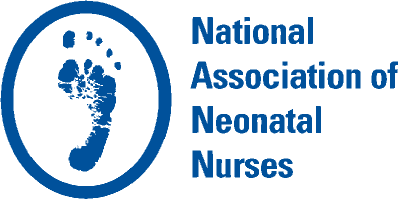Special Interest Group Update
In each issue, one of NANN’s special interest groups will share information in their area of focus.
Preceptor Role Development in the NICU
Nici Belknap, MSN RN-BC RNC-NIC
The preceptor has a significant impact on an orientee’s transition into practice in the neonatal intensive care unit (NICU). A nurse preceptor is considered to be a competent, experienced nurse who coaches, observes, and evaluates a newly hired nurse’s ability to perform clinical skills and apply critical thinking skills while managing patients in the NICU. Formal training and other resources are not always available to assist in the professional growth and development of the nurses as preceptors. This leaves them unprepared to manage this secondary role in addition to their primary clinical role of caring for patients and families.
There are multifactorial causes increasing the demand for well-developed preceptors. Many NICUs face ongoing nursing turnover related to a variety of reasons such as retirement of the baby boomer generation, advancement of education leading more nurses away from the bedside, and the appeal of travel nursing. These factors, along with a lack of formal training and other resources, suggest that there is a need for a preceptor role development program in the NICU. Many organizations have implemented an evidence-based, standardized approach to onboarding new hires, and the evidence discussed in this article suggests there should be a similar method used for the development of preceptors. Having a standardized approach will ensure consistent preceptor training. By providing the opportunity for growth and development for experienced nurses in the preceptor role, there will be an increase in job satisfaction and improvement in the onboarding experience of newly hired nurses.
A vast search of the literature was done to evaluate role development of nurse preceptors. The review included articles on training, structure, and content as well as the benefits of role development programs. Five sources of evidence are discussed in this summary.
Two of the sources, written by Trede, Sutton, & Bernoth (2016) and Wu, Chan, Tan, & Wang (2018), were systematic reviews of qualitative studies. Both reviews identify the importance of the preceptor role while acknowledging it as a secondary role. Preceptors are primarily practitioners who are being asked to perform a dual role to aid in the training and development of new nurses. The two reviews discuss the potential negative effects of inadequate preceptor role development including role ambiguity, unclear expectations, lack of awareness of resources for support, lack of buy-in, and an unwillingness to supervise new nurses, which can impact patient safety. These reviews support the notion that a formal preceptor role development program is an important step in improving preceptor effectiveness and increasing the satisfaction of both the preceptor and the orientee.
Two articles within the evidence reviewed were single qualitative studies. Ryan & McAllister (2017) conducted a qualitative evaluation of the educational experience of a formal training program for preceptors using semi-structured group interviews. The study identified that the learning experience was valuable and that, when offered, the training improved the preceptor’s perception and confidence in the role. Chang, Lin, Chen, Kang, & Chang (2015) conducted a qualitative study using questionnaire surveys and focus group interviews. Themes identified from the results included the preceptor’s opinion that inadequate training for the role is problematic and courses should be more practical rather than theoretical. The two studies have commonalities including acknowledgement that meaningful preceptor training is valuable. Common content themes identified between the two studies include communication skills, conflict resolution, and stress management and relaxation. The results also showed that meaningful stories and scenarios were considered useful in the training. The structure of training also was evaluated and the results showed that while face-to-face class time was important for initial training, a balance of class time and online resources was beneficial for ongoing role development to meet the needs of time-restrained nurses. The outcomes of these two studies support the need to develop a standardized role development program that includes didactic time and real-time validation as well as online resources.
The fifth source, Nash & Flowers (2017), is an expert opinion. In this article, the authors acknowledge the important role preceptors play in the onboarding of new nurses and the lack of preparation nurses receive for the role. The authors recommend organizations develop an evidence-based preceptor program to aid in recruitment, retention, and job satisfaction.
It can be surmised from the sources cited above that establishing a preceptor role development program is beneficial to individual nurses, both the preceptor and orientee, as well as the organization as a whole. Having an evidence-based, standardized training structure for the preceptor role will ensure more effective preceptors, more successful onboarding of new hires, and improved retention and clinical outcomes for the NICU.
There is great work being done in this area by many nursing professional development specialists and other nurse leaders in NICUs across the country. NANN’s Education Special Interest Group (SIG) is one place where such work and ideas can be shared so that others may learn and further improve on success stories. Quality improvement in nursing is an iterative process and being able to network and learn from colleagues’ experiences through avenues such as NANN’s SIGs can be significantly beneficial to the process.
References
Chang, C., Lin, L., Chen, I., Kang, C., & Chang, W. (2015). Perceptions and experiences of nurse preceptors regarding their training courses: A mixed method study. Nurse Education Today, 35, 220-226. https://doi.org/https://doi-org.wgu.idm.oclc.org/10.1016/j.nedt.2014.08.002
Nash, D. D., & Flowers, M. (2017). Key elements to developing a preceptor program. The Journal of Continuing Education in Nursing, 48(11), 508-511. https://doi-org.wgu.idm.oclc.org/10.3928/00220124-20171017-08
Ryan, C., & McAllister, M. (2017). Enrolled nurses’ experiences learning the nurse preceptor role: A qualitative evaluation. Collegian, 24, 267-273. https://doi-org.wgu.idm.oclc.org/10.1016/j.colegn.2016.04.001
Trede, F., Sutton, K., & Bernoth, M. (2016). Conceptualisations and perceptions of the nurse preceptor’s role: A scoping review. Nurse Education Today, 36, 268-274. https://doi-org.wgu.idm.oclc.org/10.1016/j.nedt.2015.07.032
Wu, X. V., Chan, Y. S., Tan, K. H., & Wang, W. (2018). A systematic review of online learning programs for nurse preceptors. Nurse Education Today, 60, 11-22. https://doi-org.wgu.idm.oclc.org/10.1016/j.nedt.2017.09.010


